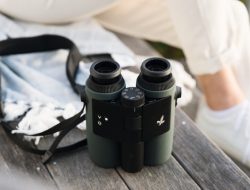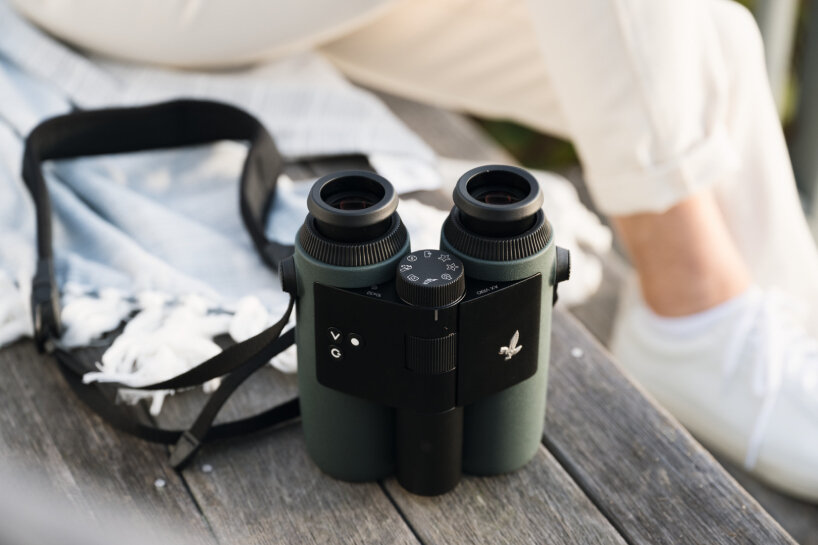Getting To Know Swarovski AI Binoculars – Swarovski AI Binoculars Tell You What You’re Seeing It was late fall, the Texas sun was bright, and I was standing on a wooden platform overlooking the moist, green core of Hazel Bazemore Park on the western edge of Corpus. Christi While unremarkable by most standards, this 87-acre mesquite and prairie is one of the richest and most diverse places in the country to view migrating birds of prey.
Getting To Know Swarovski AI Binoculars

swarovskijewelry – Three North American flying squirrels congregate here, and when I arrived in early November, more than 1.2 million hawks, turkeys, Mississippi kites, kites and others were passing through, a record number for the second year in a row.
The park is a perfect test of great technology aimed primarily at bird watchers, who continue to be one of the fastest growing outdoor enthusiasts. I was joined by about a dozen of the country’s most influential bird watchers – each of us armed with the world’s most advanced AX Visio binoculars. Swarovski Optik, the Austrian-based offshoot of the larger and top-secret luxury crystal brand Swarovski, isn’t introducing it to the world until January 9, 2024, so we’re asked not to let other birdwatchers get a close look at it. This is because the AX Visio can provide a benefit to the consumer market that no other scope or scope in the world can: it instantly tells you what you’re looking at, at least for almost every bird known on the planet. Binos can also detect hundreds of mammal species, and soon butterflies and dragonflies. And that’s just the beginning.
Only identification is innovative, but other smart binoculars can do it too. AX Visio has a tagging feature that lets you pin a specific object or location, such as a mountain goat on a distant ridge. hand the glass to a friend and a grid in your line of sight will direct the viewer to the newly corrected point. Paired with a smartphone app, these binoculars can also broadcast live to four other devices simultaneously (though both must be within about ten meters of each other), so everyone on the safari can watch the jaguars eat. A screen projected directly onto the viewfinder can also display a digital compass that provides cardinal angles and azimuth. It has a built-in camera, GPS and Bluetooth capabilities for updating firmware and connecting apps. Requires no signal from anything for full operation.
Of course Swarovski optics aren’t cheap, I’d say $3000 or more, and neither is AX Visio. With an MSRP of around $5,330, it’s not for everyone. But after playing with them for three days in Texas and then two more weeks at home in Oregon, I can say that they are great, intuitive, and provide all kinds of impactWho just wants to explore nature with his name. “I think there are applications we can’t yet imagine,” said Janet Moler, director of Audubon in Portland, Oregon. “I don’t remember anything close to a market.”
Right now in Texas I’m training the glass on a bright yellow bird with a sky blue head and black throat that comes to life like something out of a Walt Disney movie. I have never seen a bird like that. The words “Green Jay” flash directly across the bottom of the ultra-sharp image in simple, unobtrusive orange letters. Suddenly I could appreciate this park more.
Baca juga : Topik Konten Blog Menarik dan Terbaik
Swarovski AX Visio Binoculars Basics
The AX Visio (a riff on “extended vision”) looks like a thicker, more militaristic pair of binoculars with a 10×32 lens, which, like all optics, means “how big and how bright.” ; ” AX Vision 10x magnification in a case with a 32mm lens. This glass is enough to gather enough light for most outdoor situations, although it’s a bit underrated for dim conditions, like deep in a rainforest.
Like all Swarovski optics, the lenses are manufactured with nanometer precision. But the real magic lies in the carefully protected mixture of light-modifying chemical layers, applied in up to 50 layers to enhance clarity and contrast. The recipe for this coating is so secret that Swarovski decided not to patent it. This protection requires companies to disclose their materials and methods. Better to let competitors spend time and money trying to change everything with lasers and gas spectrometers than patenting, or so they thought.
Some experts on the trip, most of whom are on the front lines of the birding world as dealers selling optics to other birders, say they see birders wanting brighter lenses, say 42mm, but smaller 32mm. glass saves weight. This is necessary because the third optical cylinder is located under the bridge connecting the other two cylinders near the focus wheel. The third barrel houses a 13-megapixel camera with a fixed f-stop of 2.2 (and a maximum shutter speed of 1/125), capable of capturing HD video at 30-60fps. Combining cameras with binoculars is the key to the whole “smart” process.
Swarovski AI Binoculars
“People used to try to put cameras into binoculars, but the technology changed so quickly that by the time they came out, the cameras were already outdated,” said Daniel Nindl, the company’s director of product management. Today the components are so small and the processors so durable that Swarovski Optik, which started playing with smart binoculars a decade ago, felt confident enough to enter the prototyping stage about six years ago. In the end, engineers packed 37 lenses, eight prisms, and nine electronic boards into the AX Visio, which is powered by a removable, rechargeable lithium battery. Combined with 390 individual parts (mind sensor, gyroscope, magnetometer, accelerometer, and more) all housed in a forest green, IP68-rated moisture and dust-proof housing, the device weighs about three pounds. Even though it’s a bit ugly, it feels good in your hand.
The ID feature is worth its weight, especially when you consider the multiple options. I started bird watching during the pandemic like many others when I happened to look out the window and discovered an adorable little guy with a body as yellow as an Easter cucumber and a pointy black spot on the bird’s crown. I took a completely analog approach and pulled out a dusty copy of Birds of North America, which eventually found its way into Wilson’s lair on page 825.
Cornell University Ornithology Laboratory. I photograph a mystery bird with my smartphone, record its song or write a description, and Merlin spits out a list of possible species. I use it almost every day just to walk the dog.
This app, or rather the research and database behind it, is behind AX Vision’s bird detection. Swarovski Optik acquired the rights to use the data and then figured out how to package the hardware and software into a pair of binoculars that made sense. The system includes a processor similar to the one in your phone that runs algorithms using a “neural processing unit” based on the Merlin app. In short, artificial intelligence.

